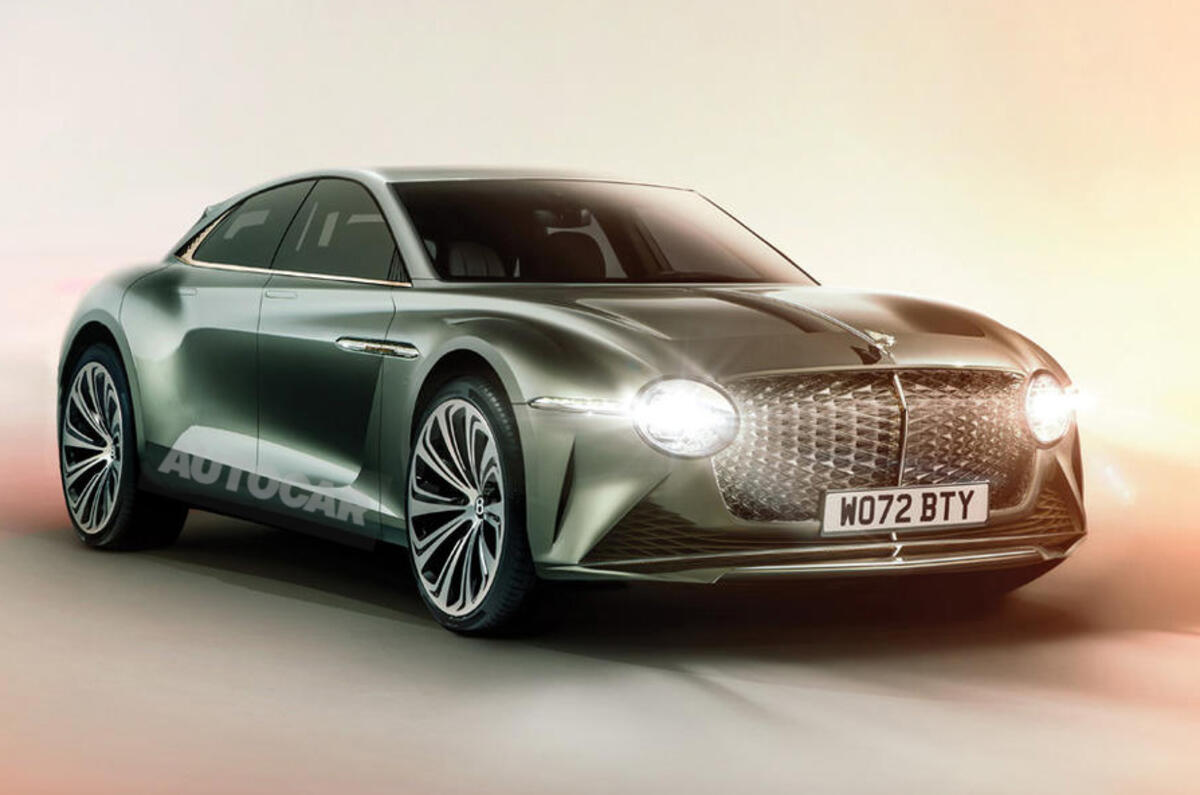Bentley will launch five electric models in five years from 2025, the first of which is likely to be a high-riding saloon.
The move announced by the Crewe firm today accelerates its Beyond100 plan of 2020 which confirmed it will become an electric-only carbon-neutral brand by 2030.
Development and design of the first model, arriving in late 2025, is well-progressed, according to Bentley CEO Adrian Hallmark. “We know the battery, the performance of the battery. The final design is weeks to a couple of months away. [The car] will be an incremental product to the ones we have today and won’t compete with anything we do. We intend to create not just an EV but to shape a segment too.”
The five cars won’t all use the same platform - “some will be higher, some will be lower” said Hallmark - but they will all use shared Volkswagen Group architecture.
Hallmark said the way group platforms are shared has significantly improved for Bentley. “Before, [our platforms] were developed from group architectures that were developed way before we got to the party. The effort to modify systems and the suppliers’ requirements has been a major limiter for Bentley in the past.
“With this generation of car, right from the outset, we’ve been involved to ensure the specification that Bentley needs. I can’t emphasise enough how much of a breakthrough this is. It’s a game changer, it’s so efficient.”
He added that battery technology has progressed rapidly to enable the firm’s goals. “Even a year ago, we didn’t have a clear commitment to a battery technology that would be sufficient to the car that we’ve now confirmed. We can now build a car as big as what we have now. If I then look forward to late twenties, it’s another stepchange.”
The first two to three electric models, he explained, will have much in common in terms of battery technology, and then the later cars will be able to take on board new developments. These improvements will then be “retro-applied’ to the first tranche of Bentley EVs. He confirmed that the first model will comfortably have more than 300 miles of range.
Sales and marketing boss Alain Favey added that charging an EV must be a truly luxury experience. “The speed and comfort of charging away from the house is probably the most important thing to our customers. We have time to work on that.”
Talking about demand for luxury EVs, Favey said: “We see a new generation of luxury car buyers who are concerned about global warming and are only buying brands which are authentically committed to sustainability. We know the majority of our customers today, when they project themselves to 2030, imagine they are driving an electric car.”
Meanwhile, this year, alongside the existing Bentley Bentayga and Bentley Flying Spur plug-in hybrids, Bentley will launch five more hybrid derivatives of those two models, all of which will be V6-powered. A more powerful V8 PHEV is expected further down the line, a similar set-up of which is already offered in the Porsche Panamera Turbo S E-Hybrid. The firm estimates that 20% of this year’s sales will be hybrid cars.
Join Autocar Business Live on 1 Feb, as we talk with Bentley CEO Adrian Hallmark about the latest Beyond100 electrification plans. Visit Autocar Business Insight




Join the debate
Add your comment
There's an honesty about Hallmark I always enjoy. What's clear is that they have a plan and a vision. By comparison, as Steve Cropley pointed out, what are we hearing from JLR leadership.... Hello, hello Gaydon, is anyone there?
It all sounds very impressive. However, two concerns: